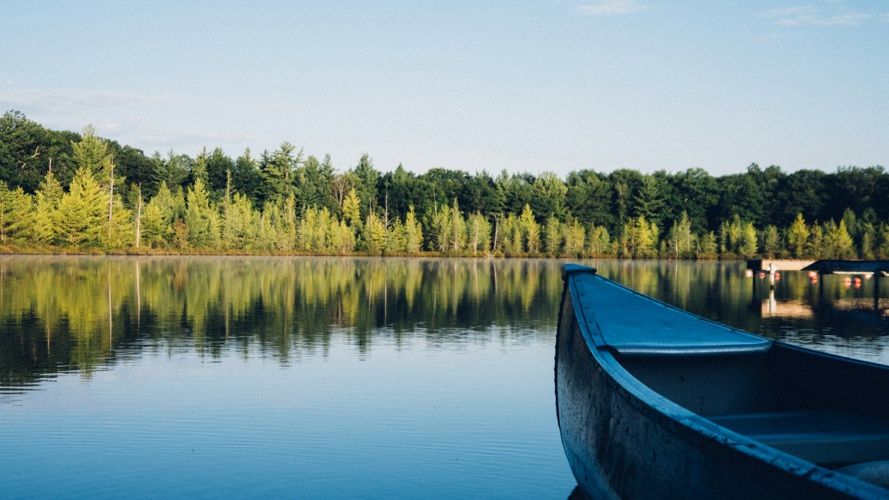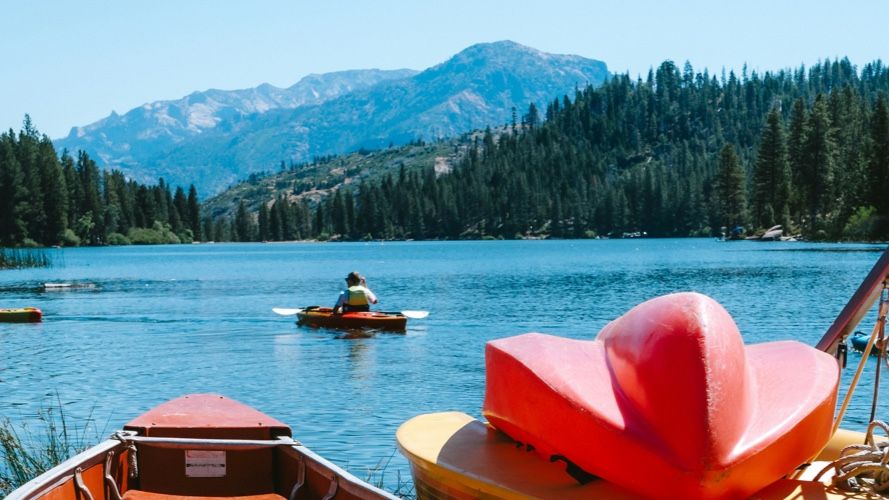Traditional summer camps: the classic camp experience for kids

Introduction
Traditional summer camps are what most parents think of when they picture classic camp experiences. Think cabins, canoes, campfires, and songs under the stars. These camps have been around for generations and offer a broad mix of outdoor fun, group games, crafts, and personal growth opportunities. This guide explores both day and overnight formats to help you choose what’s right for your child.
Key takeaways:
- Traditional camps blend outdoor play, creativity, and skill-building
- Day and overnight camps offer similar activities, with different depth and structure
- Overnight programs often build stronger friendships and independence
- Parents should assess their child’s readiness before choosing a camp type
- Schedules, packing, and expectations vary between formats
Table of Contents
What is a traditional camp?
Traditional camps date back to the late 1800s and were originally designed to give kids a break from urban life through outdoor exploration, teamwork, and unplugged fun. Today, they still emphasize the same core values: nature, community, and personal growth. These camps focus less on specific skills and more on the well-rounded experience of being part of a camp family.
In a world of constant screens, traditional camps offer kids a much-needed chance to unplug, recharge, and reconnect with real-life experiences - making them more valuable than ever. Learn more about the benefits of unplugging at camp.
For day campers
Day camps follow a structured schedule that runs during typical working hours. Campers take part in rotating activity blocks, usually held outdoors or in open-air cabins. Staff are trained in youth leadership and provide consistent group supervision throughout the day. Kids return home each afternoon, making it ideal for families who want a balance of summer fun and home routines.
For overnight campers
Overnight traditional camps include cabin accommodations, extended activity time, and nightly campfires or skits. The extra time fosters stronger peer relationships, deeper engagement, and a real sense of community. Campers sleep on-site and take part in a range of evening rituals that become highlights of the summer. Staff are present around the clock, often living in the same cabins as campers to ensure supervision and safety.
Typical camp activities
For day campers
Day campers get to try a wide variety of activities such as archery, swimming, nature walks, sports, arts and crafts, and team-building games. These are usually arranged in blocks of 45–60 minutes to keep kids moving and engaged. Some camps also include quiet time, snack breaks, and choice periods for campers to explore their interests.
For overnight campers
In addition to all the daytime activities, overnight campers enjoy nighttime programming like campfires, talent shows, night hikes, and stargazing. Because they stay longer, they often have the chance to work on multi-day projects, cabin competitions, or themed days. The extended setting helps campers build on skills and friendships over time.
Sample daily schedule
Day camp schedule
| Time | Activity |
|---|---|
| 8:30am | Drop-off and morning welcome |
| 9:00am | Outdoor games and warm-up |
| 10:00am | Arts & crafts |
| 11:00am | Nature walk or STEM activity |
| 12:00pm | Lunch & free play |
| 1:30pm | Group games or scavenger hunt |
| 3:00pm | Choice activities (camper's pick) |
| 4:30pm | Pick-up and daily recap |
Overnight camp schedule
| Time | Activity |
|---|---|
| 7:30am | Wake-up and morning routine |
| 8:00am | Breakfast in the dining hall |
| 9:00am - 12:00pm | Activity rotations |
| 12:00pm | Lunch and rest hour |
| 2:00pm - 5:00pm | Cabin group challenges or team games |
| 5:30pm | Dinner |
| 7:00pm | Evening program (campfire, talent show, etc.) |
| 9:00pm | Lights out |
What to expect as a parent
For day campers
As a parent, you’ll likely be involved with drop-off and pick-up, packing daily lunches, and making sure your child has sunscreen, a water bottle, and change of clothes if needed. Many camps share daily recaps or photos so you can get a glimpse of their day. Costs are generally lower, and the daily routine helps ease first-time campers into the experience.
For overnight campers
Overnight camps require more upfront prep. You’ll need to pack everything from clothing and toiletries to sleeping bags and comfort items. Most provide an overnight camp checklist to help. Camps typically send updates via email or apps, and you may be limited in direct communication. Homesickness can happen, but trained staff are there to support each camper’s transition.
Benefits of traditional camps
Day camp benefits
Day camps provide a structured yet flexible way for kids to enjoy camp without sleeping away. They’re great for younger kids, local families, or first-timers who want to ease in. The cost is often more affordable, and it gives kids a chance to socialize, stay active, and try new things in a safe, supervised setting.
Overnight camp benefits
Overnight camps offer a full-immersion experience that fosters deep friendships, confidence, and independence. Living away from home teaches kids valuable life skills and strengthens resilience. Without screens or distractions, they’re free to explore nature, bond with others, and make lasting memories in a supportive environment.
How to choose between day and overnight
Think about your child’s personality, maturity, and comfort level with being away from home. If they’ve never done a sleepover or are under age 9, day camp might be a great starting point. Kids who enjoy independence, trying new things, and being part of a 24/7 experience might thrive in an overnight program.
Your family’s schedule, budget, and travel flexibility also matter. Some camps offer short overnight sessions as a test run. If you’re not sure, visit our full guides on
FAQ
- Are traditional camps coed or single-gender?
- Many are coed, but there are also single-gender options available. It's up to the camp’s philosophy and structure. Always ask how groups are divided during activities.
- What is the typical age range?
- Most traditional camps serve ages 6 to 17, with groupings based on grade or age. Some programs are tailored to younger campers or teens specifically.
- Do I need to pack food?
- For day camps, yes-usually a lunch and snacks. Overnight camps provide all meals unless your child has special dietary needs, in which case you should discuss it with the camp ahead of time.
- How do camps handle homesickness?
- Staff are trained in helping campers manage homesickness with empathy and distraction techniques. Encouraging letters from home and structured schedules also help reduce anxiety.
- What if my child has special needs?
- Many traditional camps are inclusive and offer support for a range of needs. Be open with camp staff about your child’s requirements so they can plan accommodations if available.
Conclusion
Traditional camps continue to offer kids a well-rounded, joyful, and memorable summer experience. Whether your child is dipping their toes into a day camp or diving into an overnight adventure, there’s value in both formats. Focus on what aligns best with your child’s age, interests, and readiness, and you can’t go wrong.
Explore your options, ask questions, and trust your instincts as a parent. The best summer experiences often begin with a little courage and a lot of sunscreen.



